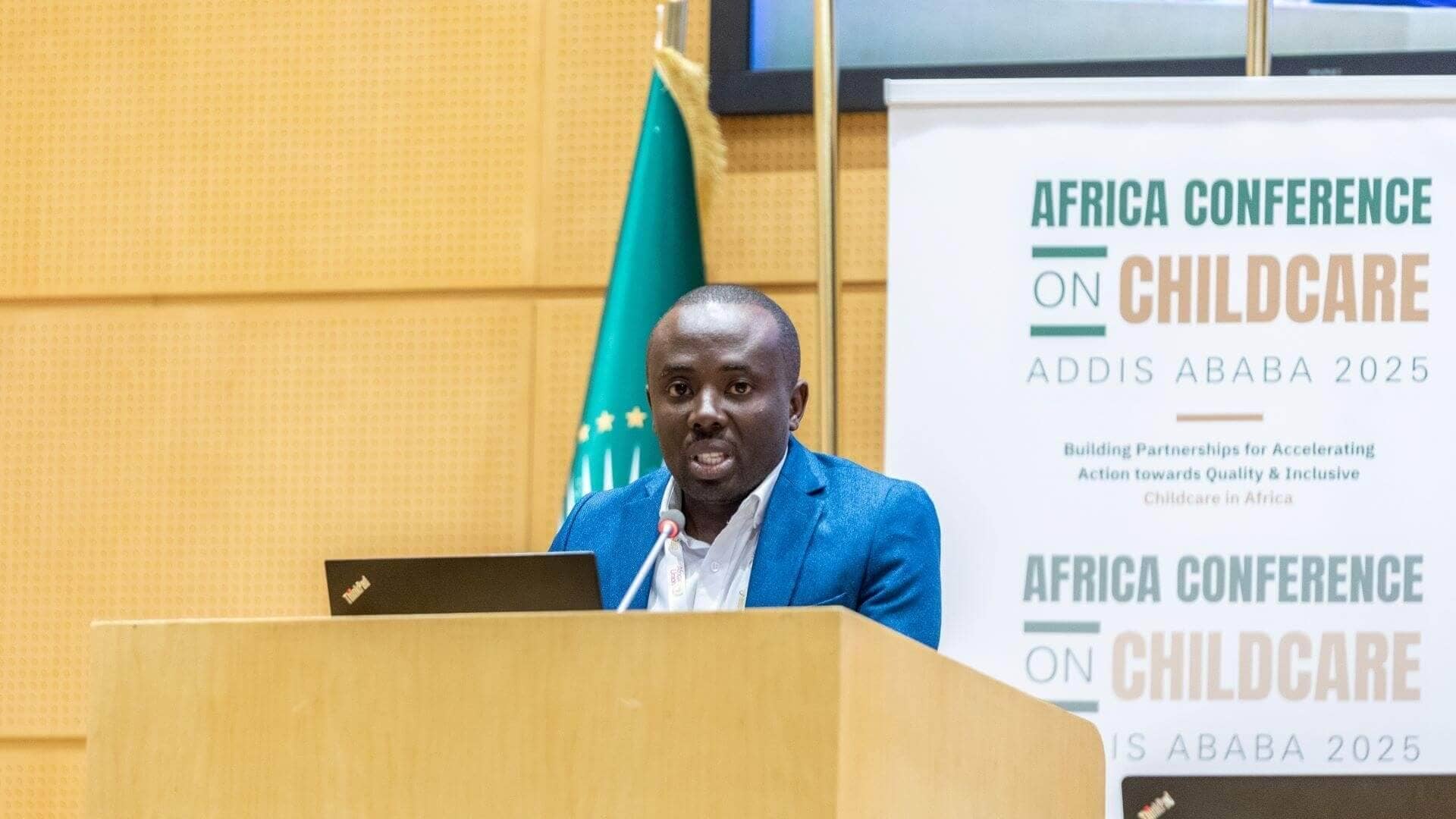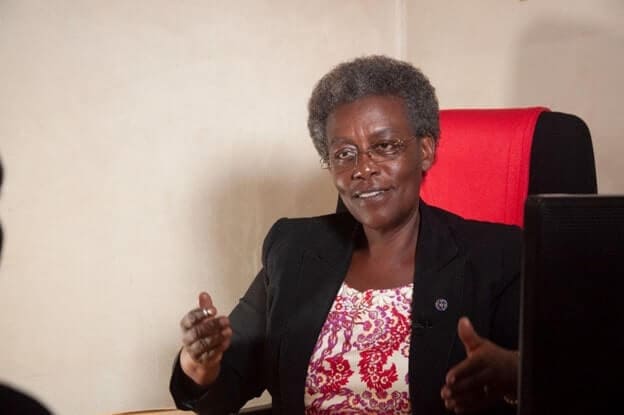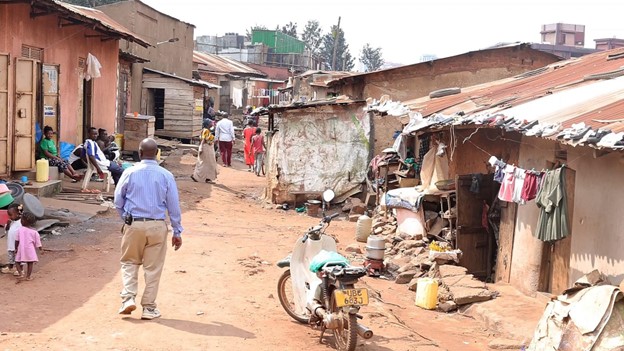From Refugee to Restaurateur: The Inspiring Journey of Estella Munezero
From Refugee to Restaurateur: The Inspiring Journey of Estella Munezero
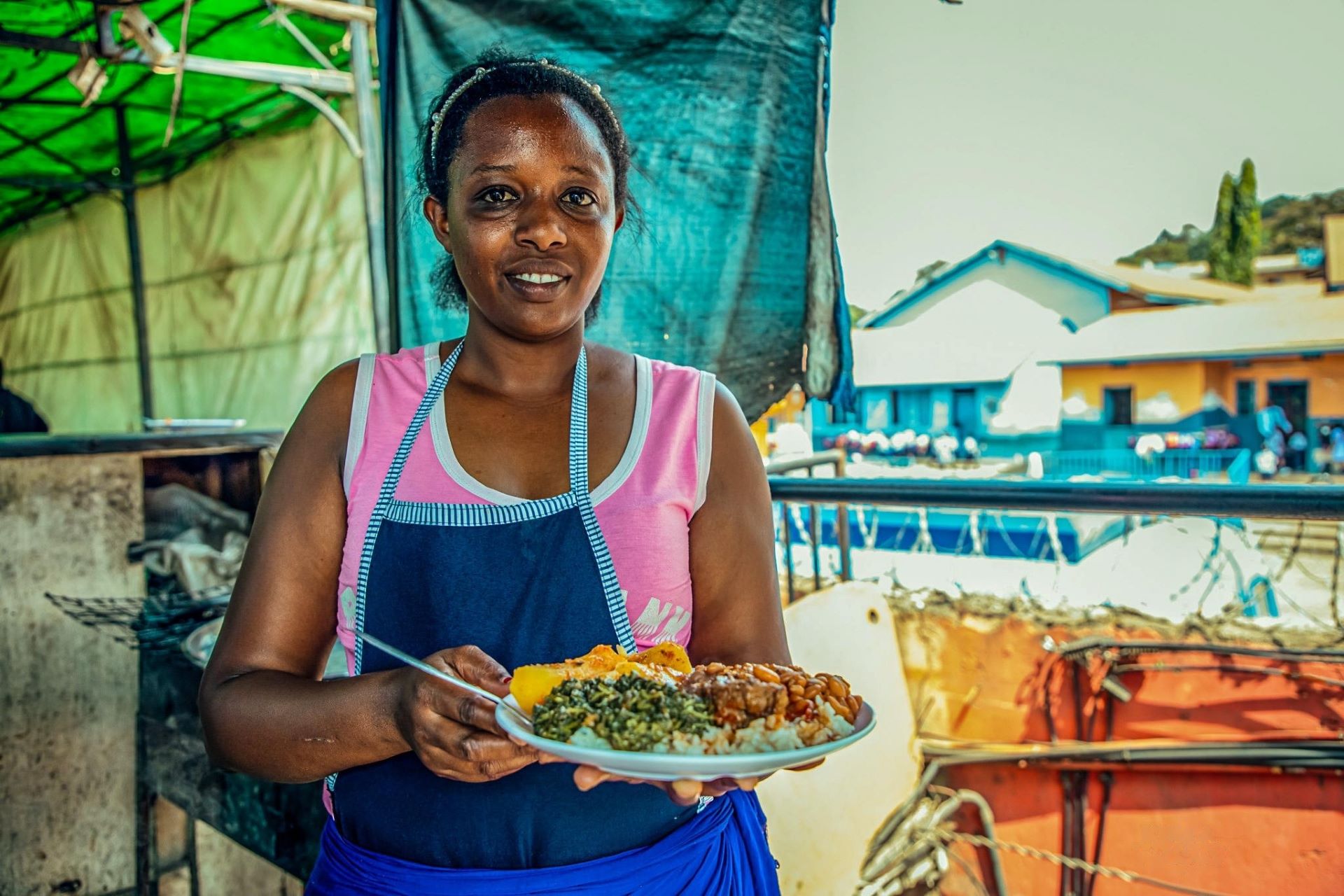
Estella Munezero displays a plate of food shortly before serving a customer. Estella is grateful to the Kulea Watoto Project for supporting her to realize her dream of opening a restaurant in Kampala
At just 28 years old, Estella Munezero, a Burundian refugee, arrived in Uganda with little more than her remarkable culinary skills and a dream of forging a brighter future for her family.
However, the transition to her new home proved challenging. Language barriers loomed large, and cultural differences were overwhelming. As she navigated the job market, her foreign recipes were often dismissed, leaving her to bounce from one unsatisfying job to another. Her husband, Fauste Ndujumbire, a boda-boda rider, struggled to sustain the family with his meager daily earnings. The couple’s aspirations for a fresh start seemed increasingly distant.
"I was very depressed," Estella recalls. "Back home, I was a successful chef with a booming restaurant in Bujumbura. I had hoped to replicate that success in Uganda, but reality proved to be different."
Despite these trials, Estella was resolute in her desire to share her culinary passion with her new community. She knew that to support her family - comprising two young children aged 2 and 5 - she needed to find a way to establish her own restaurant. "But with what?" she often wondered. All she had were her skills and a vision, but no capital to begin her venture.
Just as she was grappling with this daunting challenge, Estella’s prayers were answered. In December 2023, she was approached by the Kulea Watoto Project and registered as a client. Having heard of the support provided by the International Rescue Committee (IRC) to the refugee community, she felt a surge of optimism.
"This was the turning point in my life," she says. "Kulea Watoto changed everything for me. I received training in various aspects of business management, but the lessons on nurturing children were transformative. I had successfully run a business before, but understanding how to care for a child is something that will stay with me for a lifetime."
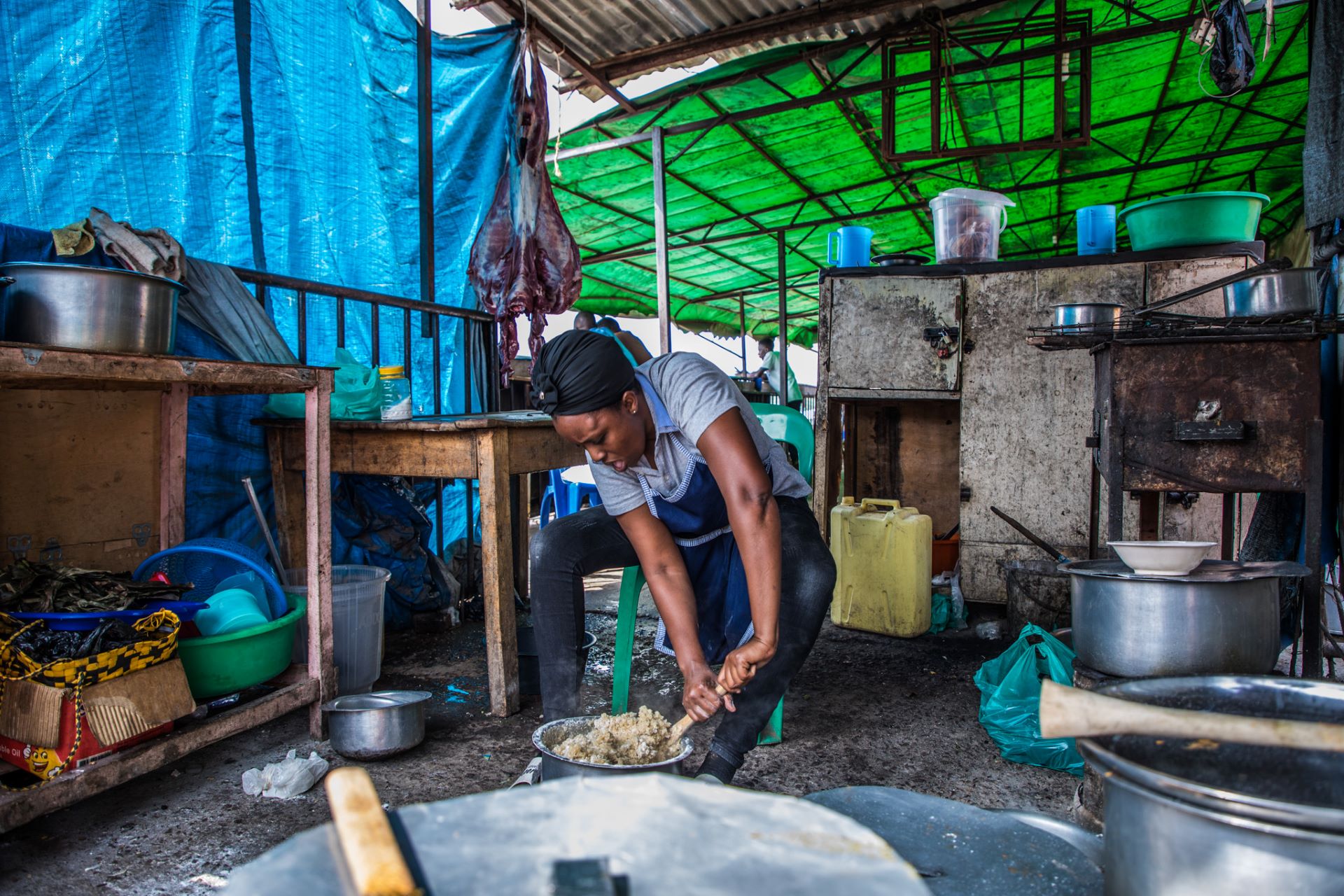
Determined! Munezero prepares posho popularly known as ugali inside her kitchen. Munezero’s restaurant serves cuisines to refugees from Burundi, Rwanda and DR Congo whilst employing both nationals and refugees
During the training, Estella learned about the importance of spending quality time with children to foster their cognitive growth, as well as how to provide nutritious meals that support their development. Her husband, Fauste, also participated in the training, deepening their shared commitment to nurturing their children.
"I learned that healthy meals don’t have to rely solely on expensive foods and ingredients," Estella explains. "Nutritious foods like silver fish, greens, and posho can support a child's growth just as effectively as meat and chicken. Having my husband attend the sessions reinforced this important message."
By the end of the training, Estella was awarded a cash grant of UGX 810,000 ($220), which she used to take the first step toward her dream. She rented a space in a bustling park where buses transported goods and people to Burundi and opened her own restaurant. From that moment, her fortune began to change.
"I felt sad before opening this restaurant," Estella admits. "It’s hard to leave behind your homeland and all the memories. But now, I am doing something I love and know how to do. Cooking for my family in Burundi was once a daily routine; here, when I hear customers say, 'Thank you, that was delicious,' it fills my heart with joy."
Estella’s eatery serves authentic Burundian dishes such as maharagwe, matura, mahu, ibiharage, and sombe, garnering a loyal following among refugees from neighboring countries like Congo and Rwanda. "What Estella has created is incredible," says Musa, a frequent customer. "The taste of her food reminds us of home. She has made us proud, and I’m grateful to Kulea Watoto for helping her realize her dream."
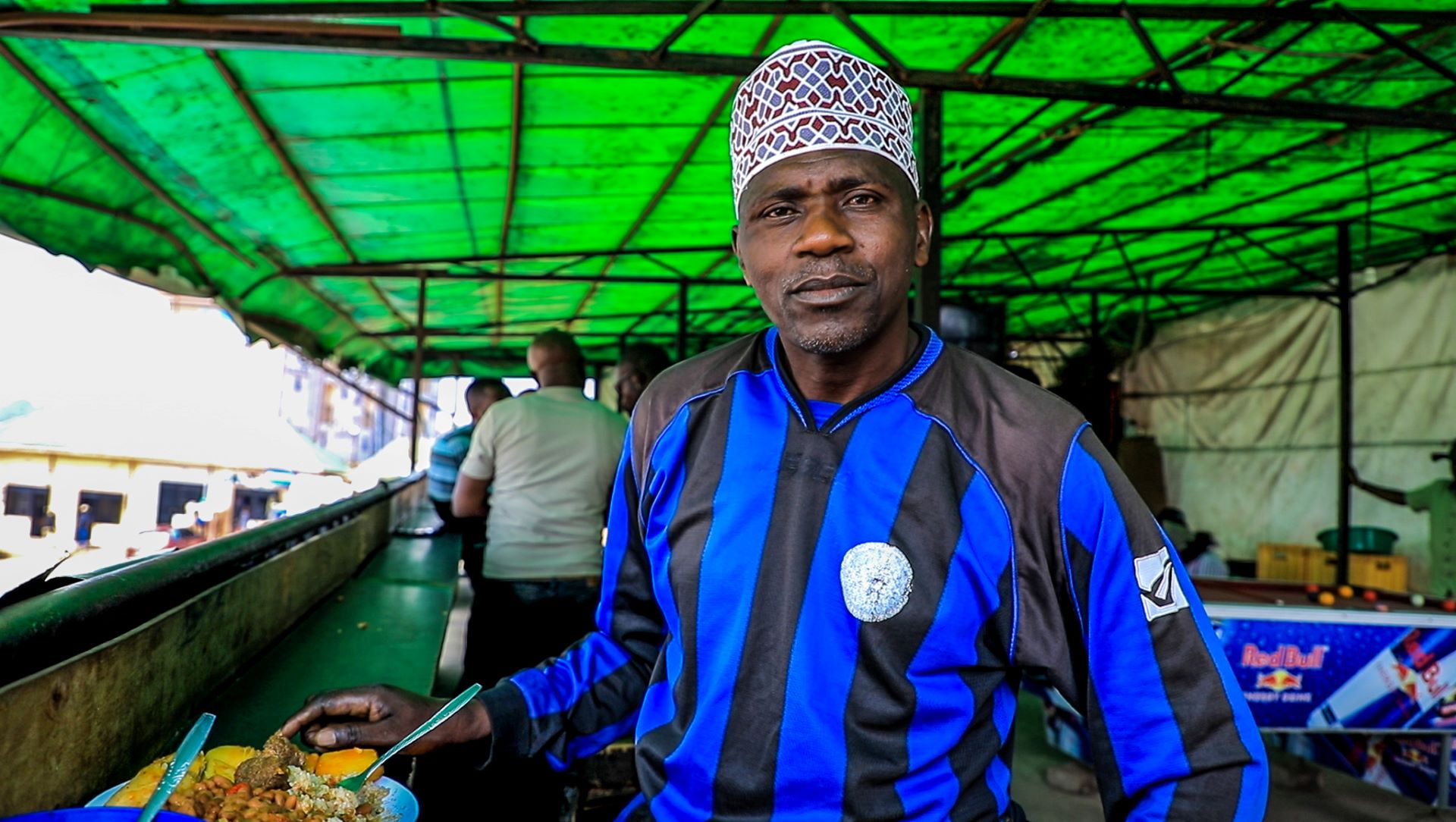
Musa, a regular customer at Munezero’s restaurant enjoys his favorite dish. Musa is thankful towards the Kulea Watoto Project for offering refugees like Munezero cash grants that have enabled them start business like this restaurant that he says its “food reminds me of home”
As word of Estella’s culinary talents continues to spread, her business flourishes. With support from loyal customers, she has been able to hire six employees, including four locals, to help manage the restaurant and expand her client base. With her husband (Fauste)’s help as a delivery cyclist, Estella now delivers food to customers who can’t visit the restaurant, further increasing their family’s earnings.
"We work as a team," Fauste says. "I deliver around town, which saves transportation costs and boosts our revenue. I am so thankful for the support Kulea Watoto has given my wife. At the end of each day, we return home satisfied, hopeful for our children’s future, knowing they will have access to good education, basic necessities, and play materials that we didn’t have growing up."
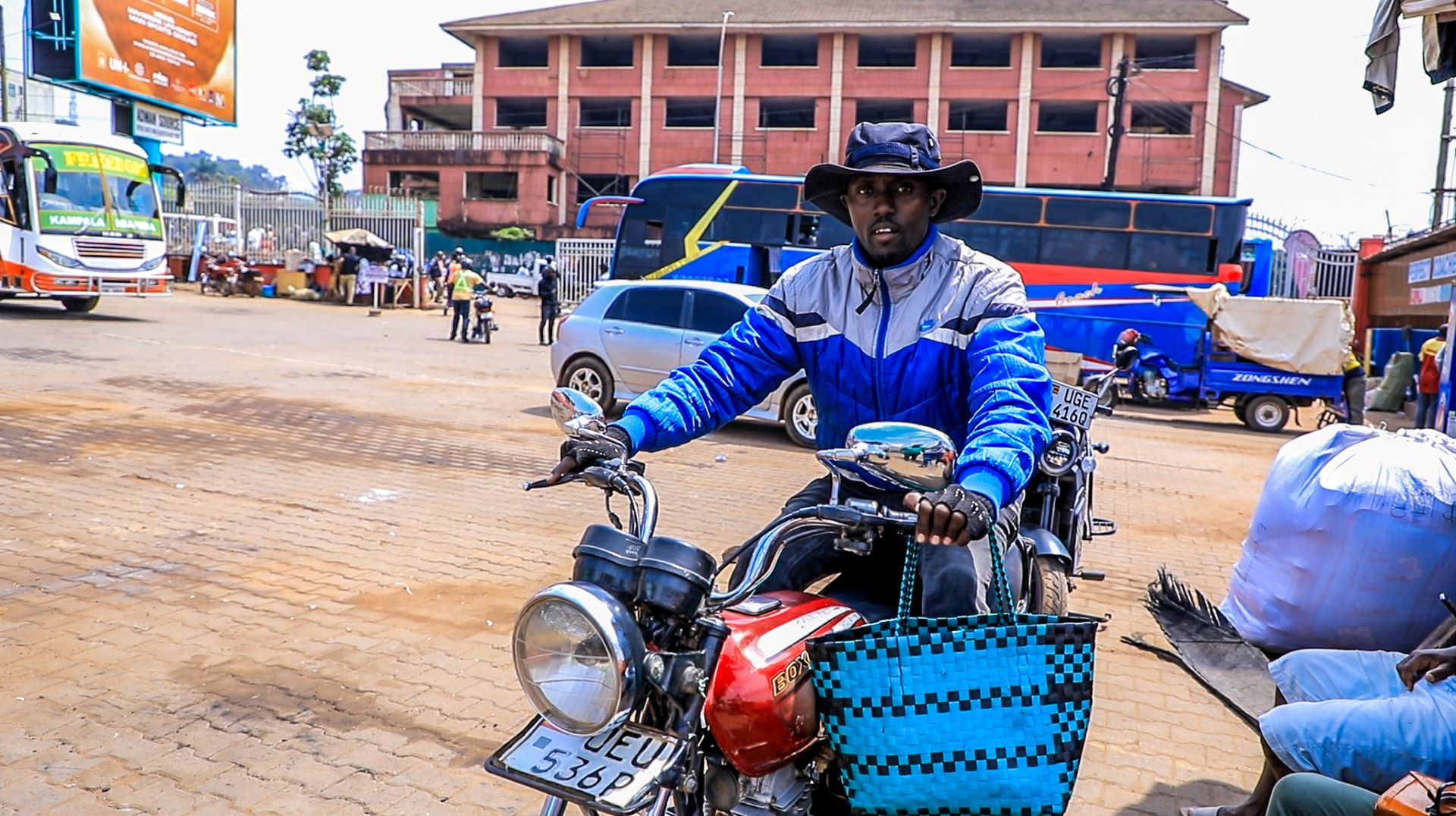
Fauste Ndujumbire, Estella Munezero’s husband prepares to deliver food to customers using his boda-boda. Fauste is working hand-in-hand with his wife to increase on their earnings to be able to provide for their children’s needs
Today, Estella’s restaurant has become a cherished local establishment, celebrated for its authentic Burundian flavors and warm hospitality.
"We are not a burden," Estella emphasizes. "As refugees, we contribute and give back, just like everyone else, thanks to Kulea Watoto. I earn a net profit of over UGX 100,000 ($33) a day - something I never thought was possible. I am truly grateful."
As of December 2020, 86,730 individuals (67,492 refugees and 20,665 asylum-seekers) were registered in Kampala (UNHCR 2020). Employing a two-generation approach, the Kulea Watoto Project continues to reach out to qualifying refugee households, offering nurturing care sessions, business skills training, financial literacy, and startup funding for innovative business ideas aimed at enhancing income generation capabilities - this with the unwavering belief that providing comprehensive support and services that improve the ability to earn a decent living for caregivers will translate into the well-being of children.

